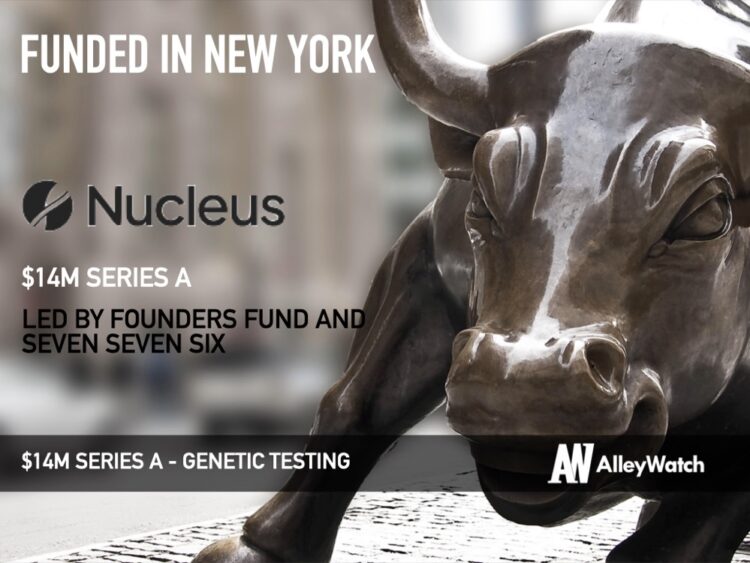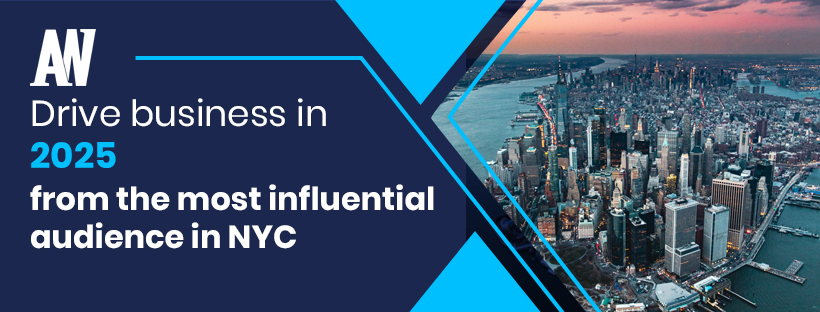In an era where the U.S. healthcare system spends $4.5T annually yet faces systemic failures, with life expectancy plummeting to a three-decade low and chronic disease rates at an all-time high, the need for preventative healthcare solutions has never been more critical. Despite these challenges, over 99.9% of people haven’t had their genome sequenced, leaving them vulnerable to undetected genetic conditions that could impact their health. Nucleus is revolutionizing this landscape by offering the first genetic test built exclusively for preventative health, analyzing nearly 100% of a person’s genetic sequence – 1,000 times deeper than traditional DNA services. Through their clinical-grade whole-genome DNA analysis, they offer clear risk assessments for over 800 diseases, while their new AI Doctor feature provides personalized protocols for users to actively reduce their health risks. With their recent acquisition of Cambrean, an AI-based health platform, Nucleus is integrating wearable data with genetic insights to provide a complete picture of personal health.
AlleyWatch sat down with Nucleus CEO and Founder Kian Sadeghi to learn more about the business, its future plans, and recent $14M Series A round that brings total funding to $32M.
Who were your investors and how much did you raise?
I’m incredibly proud of the investors we’re partnering with, including 776 and Founders Fund, who led previous rounds. This latest round was a $14M Series A, bringing our total funding to nearly $32M. It’s an honor to continue working with our longstanding partners, who were there with us from the early stages, and bring in new investors like Neo, One Eight Capital, and Giant Step.
What makes this round special is that it comes at a time when longtime genetics giants like 23andMe and Ancestry are stumbling. Naturally, some have concluded that the era of consumer genetic testing is ending.
Nothing could be further from the truth. For Nucleus and our investors, we know the downfall of an industry giant combined with our strong early traction — and our focus not on ancestry, but health — means the demand for accessible, secure, and meaningful innovation has never been higher.
Tell us about the product or service that Nucleus offers.
Nucleus is the first genetic test built exclusively for health. From a single swab, we tell you your risks for over 800 diseases — we help people answer questions like “My mom had cancer — am I also at risk?”, “What are my kids at risk for?”, or “Should I take this medication?” In short, we’re using technology to take the guesswork out of health care.
Today, there’s no shortage of health data — in fact, what we see now is that providers and consumers are totally inundated with it. So why does our average lifespan keep declining? Well, we’re looking at those datapoints in isolation, and so it’s impossible to make sense of them.
Nucleus is a clinical-grade DNA test that’s focused on delivering the context you need to act on your health data and personalized health recommendations. First, our platform decodes nearly 100% of your genetic sequence, going 1,000 times deeper than any other brand-name DNA service out there. Next, we combine this data with lifestyle factors to offer insights into everything from your risk for chronic diseases to, soon, how your body will respond to different medications. Our AI-powered health assistant gives consumers the tools to take control of their health like never before, whether that’s through family planning, managing health risks, or optimizing their day-to-day routines.
What inspired the start of Nucleus?
 I’ve always been someone who’s fascinated by the “why” behind things – why we’re built the way we are, why some people seem to defy the odds with their health, and why others, like my cousin, don’t get that chance. When I was almost 7, my cousin tragically passed away in her sleep, and doctors suspected it was due to Long QT syndrome, a rare genetic heart condition. What made it even more devastating was knowing that it is possible for these kinds of deaths to be prevented. That loss shaped me in ways I didn’t fully understand at the time, and it ultimately led me to found Nucleus.
I’ve always been someone who’s fascinated by the “why” behind things – why we’re built the way we are, why some people seem to defy the odds with their health, and why others, like my cousin, don’t get that chance. When I was almost 7, my cousin tragically passed away in her sleep, and doctors suspected it was due to Long QT syndrome, a rare genetic heart condition. What made it even more devastating was knowing that it is possible for these kinds of deaths to be prevented. That loss shaped me in ways I didn’t fully understand at the time, and it ultimately led me to found Nucleus.
In high school, I realized the power of curiosity to drive and mold the world around you. I became fascinated with this idea that disease is just another problem to be solved, which took me to a DIY-gene editing laboratory in Brooklyn.
Later, while studying computational biology at Penn, I started seeing what was possible at the intersection of bits and atoms. The price of genetic sequencing, something that once cost millions, was on track to be hundreds of dollars. For the first time in history, at the moment someone is born, we can screen for thousands of genetic diseases and calculate their predispositions to every chronic and rare disease to inform their health care for the rest of their lives. It’s groundbreaking. One in 10 people in the U.S. have a genetic disease, and over 50% of people have a chronic disease.
But millions of people, like my cousin, are still falling through the cracks. Over 99.9% of people haven’t had their genome sequenced. As a result, the vast majority of us have a high genetic risk we don’t know about.
So I left school to build Nucleus when I was 20. Everyone should have the blueprint for their own health, and I want to provide access to the technology that makes that possible.
How is Nucleus different?
Genomic testing has always been fragmented— there are over 70,000 genetic tests on the market today, each analyzing different genes or markers. Our technology combines all these tests into one.
We perform thousands of health analyses from a single swab, at one price point. This same analysis used to cost over $10 million. We do it for $399.
We digitize your DNA — so you can constantly get updates and insights without ever needing to do another genetic test.
What market does Nucleus target and how big is it?
Nucleus operates in the consumer healthcare market, particularly in genomics and personalized medicine. This market is rapidly growing, with projections suggesting it will exceed $30 billion within the next five years.
What’s your business model?
We charge a one-time fee for our whole-genome test, with a yearly subscription fee of just $39 that automatically gets you all our new analysis and updates. Most genetic platforms have a marketplace model, where people pay per result, or charge higher subscription fees. We keep it simple and seamless.

How are you preparing for a potential economic slowdown?
We’re building a product that people really want, and has the potential to transform the way people approach their health. As a result, we’re well-capitalized and we have runway for several years. No matter what happens to the macroeconomy, we’re going to keep growing and scaling.
What was the funding process like?
When you consider our team, product, technological innovation, and hunger — this is a no brainer to invest in. It’s like being in the 2000s and betting that everyone will have a smartphone one day. It’s inevitable.
What are the biggest challenges that you faced while raising capital?
We are building one of the most innovative consumer health companies of our time at the same time when the cost of accessing and reading someone’s DNA is decreasing. Because of this, we’re fortunate that our financing was straightforward. We’ve seen massive growth in the last several months since we’ve launched the product. As a result, our financing was straightforward and we’re excited for the opportunity to continue scaling in the future.
What factors about your business led your investors to write the check?
We’ve made something people want.
I’ve been building Nucleus now for almost five years. I’ve seen Web3, crypto, and AI, plus plenty of other trends that have come and gone.
We’ve remained steadfast in our mission to build the application layer for DNA. When you combine that kind of persistence and passion with a customer obsession and frontier technology, it’s inevitable that an investor is going to write a check. They see the depth of our technology, the long-term scalability, and the massive impact potential.
They were also drawn to the team—I’ve surrounded myself with a group of people who are not only experts in their fields but who are incredibly passionate about our mission. Investors want to back teams that are committed to long-term success, and we’ve proven that we can execute at scale.

What are the milestones you plan to achieve in the next six months?
Until now, we’ve been focused on individual health. This year, we’re developing features focused on family health. Starting a family can come with so much uncertainty, but the beauty of genetics is that it offers clarity, far into the future.
On top of that, we’re deepening our individual health offerings with genetic analyses for how you respond to metabolize medications, as well as expanding our AI tools to offer more precise health recommendations.
What advice can you offer companies in New York that do not have a fresh injection of capital in the bank?
Make something people want.
Where do you see the company going now over the near term?
I’m thrilled that Nucleus has acquired Cambrean, an AI-based health platform pioneering algorithms to transform data from wearables like Oura rings and Apple Watches into actionable health assessments. David Sloane, founder and CEO of Cambrean, will join Nucleus.
We intend to bridge the gap in these rich data points, woven together by a person’s genetic insights, for full-picture health insights. Thoughtfully integrating each data point with DNA is the way to tell the complete story about someone’s health.
Matt Lanter, cofounder of OpenStore, will also join Nucleus as president. He brings deep operational, engineering, and product experience to help us better serve customers and scale.
What’s your favorite winter destination in and around the city?
Rezdora in Flatiron.





